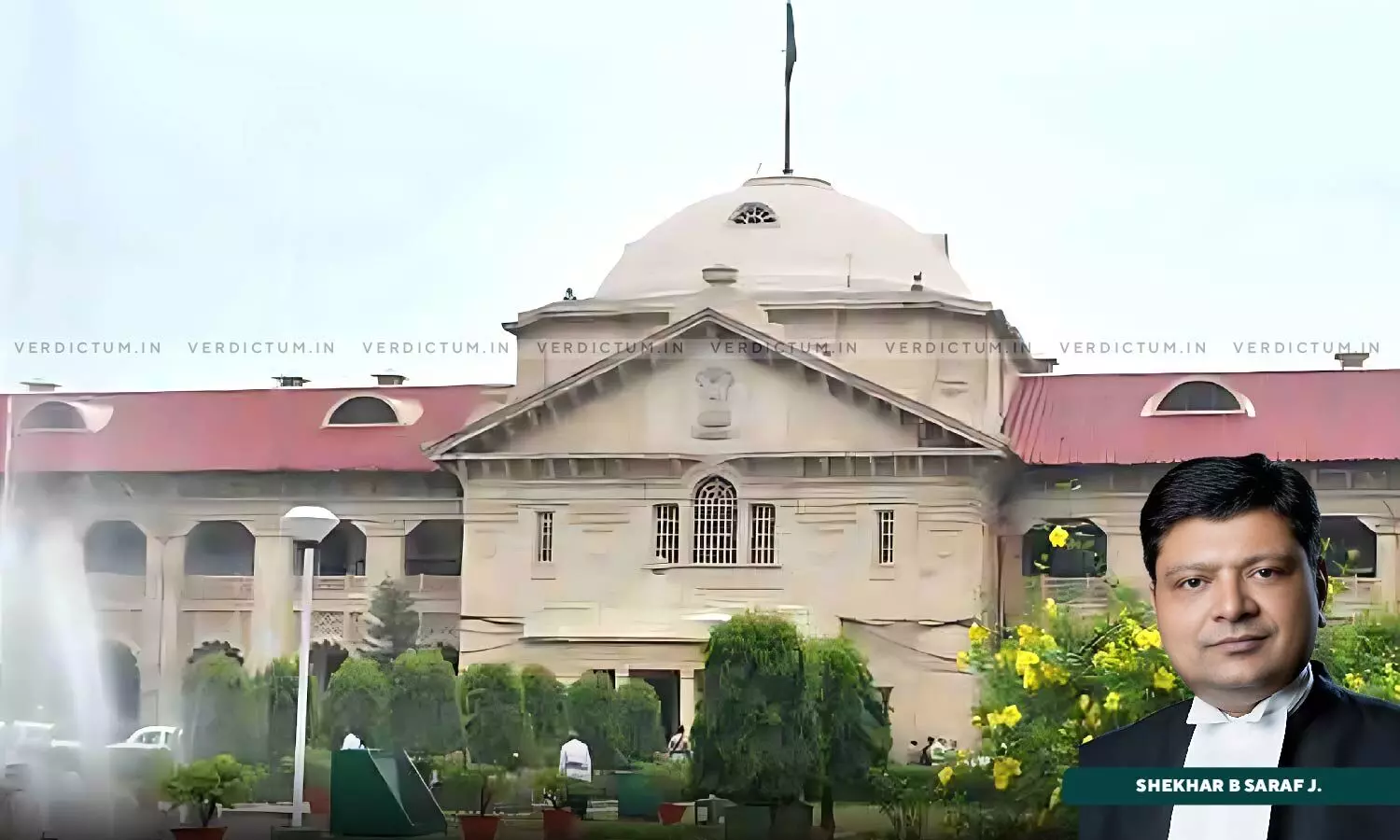
Arbitral Award Based On Law In Existence At The Time Of Proceedings Cannot Be Held To Be Patently Illegal On Ground Of Subsequent SC Ruling: Allahabad HC
 |
|The Allahabad High Court observed that when an arbitrator passes an award based on the law in existence at the time of the proceedings, the said findings cannot be held to be patently illegal on the grounds of a subsequent ruling.
The Court also reiterated that the principles laid down in a legal precedent by the Apex Court cannot be applied retrospectively as it would open a Pandora’s Box and create untenable situations.
The Bench of Justice Shekhar B Saraf observed, “If parties were allowed to reopen concluded arbitrations based on new judicial rulings, it would lead to a flood of claims seeking to modify or overturn arbitral awards. Moreover, the retroactive application of judicial decisions to arbitral awards would create legal and procedural chaos. Arbitrators make decisions based on the legal framework and precedents available at the time of the arbitration. Expecting them to foresee and apply future judicial decisions is unreasonable and impractical. Such a practice would erode the confidence that parties have in arbitration as a reliable and predictable method of dispute resolution. When an arbitrator passes an award correctly based on the law in existence at the time of the proceedings, the said findings cannot be held to be patently illegal on the ground of a subsequent Apex Court ruling. Holding such a finding to be patently illegal would in fact be against the public policy of India."
Advocate Rahul Agarwal appeared for the Appellant while Advocate Vaibhav Tripathi appeared for the Respondents.
The Appellant’s property was acquired by the National Highway Authority of India. A dispute arose regarding the valuation of the property which was referred to the Special Land Acquisition Officer (‘SLAO’). The SLAO directed the PWD to inspect the site and send a fresh valuation report. There were contradictions in the valuation of SLAO and PWD’s report, and therefore, SLAO held that because the construction of the National Highway was being conducted by the NHAI, therefore the valuation of the Project Director, NHAI would be considered to be appropriate.
Aggrieved by the order, the Appellant filed an application before the District Magistrate for arbitration under Section 3 G(5) of the National Highways Act, 1956.
The Arbitrator re-determined the valuation of the building only. Aggrieved by this, NHAI and the Appellant, challenged the award under Section 34 of the Arbitration and Conciliation Act, 1996 (‘Act’) for enhancement. The district judge dismissed the challenge filed by the NHAI and the Appellant. Hence, the present application under Section 37 of the Act.
The Court said that the courts must carefully balance upholding public policy with respecting party autonomy and the finality of arbitration when using this ground to set aside awards as public policy can encompass a wide range of principles, including justice, equity, and morality.
The Court held, “When an arbitral tribunal fails to consider an issue raised by the parties and provides no reason for such omission, it creates a situation where the affected party is left without a clear understanding of why their argument was disregarded. This lack of reasoning can lead to a perception of arbitrariness and bias, further eroding the credibility of the arbitral award. In such cases, the affected party is left with no option but to challenge the award on the grounds of patent illegality.”
The Court relied on the landmark judgment in Union of India v. Tarsem Singh and Ors. (2019 SC), in which it was held that the provisions of the Land Acquisition Act as far as solatium and interest are concerned will apply to acquisitions under the National Highways Act. The Supreme Court also noted the submission of the Government that solatium and interest should be granted even in cases that arise between 1997 and 2015.
On the applicability of Tarsem Singh (supra), the Court noted that the judgment was delivered later and the instant case was concluded in 2008, therefore, applying principles in the judgment retrospectively would create an untenable situation and impose future judicial decisions on past arbitrations would disrupt the stability and predictability that arbitration aims to provide.
“In the instant case, it has been contended by the Appellant that despite recording the arguments advanced by the Appellant regarding the valuation of land, the Arbitrator awarded compensation for building only. The concept of patent illegality, in the context of arbitral awards, refers to an evident and manifest error that goes to the very root of the matter. It implies a fundamental flaw that is apparent on the face of the record and affects the substantive rights of the parties. The failure of an arbitral tribunal to consider an issue raised by the parties, without providing reasons, constitutes such a flaw.”, the Court held.
Accordingly, the Court concluded that the arbitral award suffered from the patent illegality as far as non-consideration of the compensation for land is concerned and is accordingly set aside to that limited extent.
The Court remitted the matter back to the Arbitrator with a direction to recalculate the compensation to be paid to the Appellant for land in accordance with the law.
Cause Title: Smt. Savitri Devi v. Union of India & Ors. (Neutral Citation: 2024: AHC: 109223)
Appearances:
Appellant: Advocates Rahul Agarwal and Akashi Agarwal
Respondents: Advocate Vaibhav Tripathi